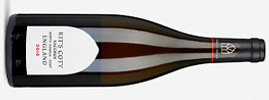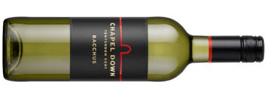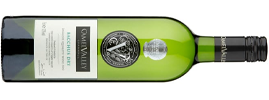Grapes and libations

Bacchus is perhaps one of the best named grapes out there. An homage to the Greek god of wine and, for some I'm sure, the Bacchanal excess that goes with it! Although perhaps not to the same extent as some of the more lurid tales of the Greeks.
Bacchus is in fact a feat of human engineering, a crossing between Muller-Thurgau and a Silvaner-Riesling crossing. These are all German wine mainstays in the grape world and explains why Bacchus has proved so effective in the UK. Our climate is not dissimilar and thus grapes for cooler climates have been successfully cultivated in the UK. Nowadays, most of the Bacchus grapes we see are indeed English wines, although I suspect in Germany they have many available from local producers as well.
What is Bacchus like?
The grapes Bacchus is born from are aromatic in nature which, unsurprisingly, leads to a very aromatic profile in Bacchus itself. It is most like Sauvignon Blanc, with flavours going from the more moderate French styles from the Loire to intense and tropical New Zealand ones. Generally, you can consider that Bacchus in the UK is somewhere in the middle of these with high acid and intense elderflower, gooseberry, grapefruit and nettle flavours.
It was an easy sell too to the UK market given our love for NZ Sauvignon, this helped people explore something new and exciting sounding without going too far off the flavour track. Bacchus really launched to prominence in 2017 after winning Best White Single-Varietal Wine in the World in the Decanter World Wine Awards. And now, it is the 4th most planted grape just behind the usual Champagne trio (Chardonnay, Pinot Noir & Meunier).
Some Bacchus Recommendations
I got to try this one last Christmas, kindly sent by Selfridges which you can read about in my review here. But in short, Kit's Coty is Chapel Down's "Finest Vineyard"!
The Bacchus from there is extremely aromatic, with elderflower, nettle, and fresh-cut grass really exemplifying it. A fruity side balances this out with tropical notes like lime zest and guava giving a ripe feel to the wine. On the end you’ll get a subtle smoky hint which Pouilly Fume lovers will enjoy the most.
The palate itself possesses weight and richness despite these otherwise lighter, aromatic aromas. Evidence of barrel use through toasty, smoky notes added to this. Lemon and lime zest, green apple, peach and lychee contributed to the fruit in a very emphatic manner, giving the wine real character and flavour intensity. A long, zippy finish caps off the classic Bacchus grape acidity. It’s the best Bacchus I’ve tried yet!

I might be banging the Chapel Down drum a bit here but this is partly because they are good, and also some of the more easily available to try a sort of definitive example of the grape in England.
This is the standard Bacchus. The grapes are pressed in whole bunches, which is a gentler method, to capture the aromatic aromas as much as possible. It is essentially a brighter, fresher version of the Kit’s Coty aiming for less complexity and more quaffability. Think grapefruit, lemon, melon and green apple. It is delicious on a hot day if you’re bored of Oyster Bay.

An excellent winery based in Cornwall, which is the warmer of England’s regions to grow wine in, Camel Valley is a family winery gaining a great reputation. This Bacchus won Gold at the 2009 International Wine Challenge. It’s a fresh and fruity wine as per the style, but comes closer to something like Sancerre. Elderflower, grapefruit, nettle and zippy citrus fruits are there but it has a degree of grape flavour itself too (something strangely uncommon for wine). A great wine to get in the rack.
